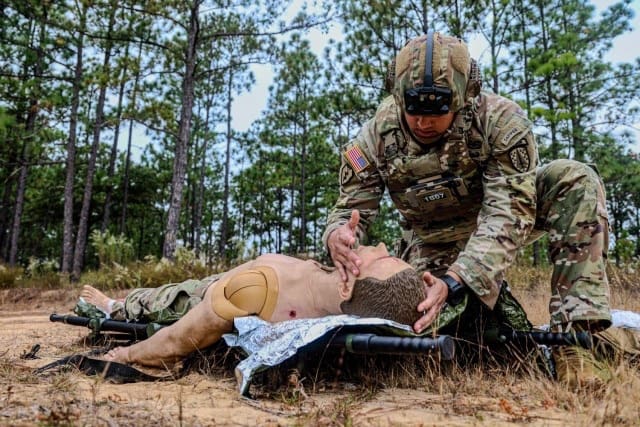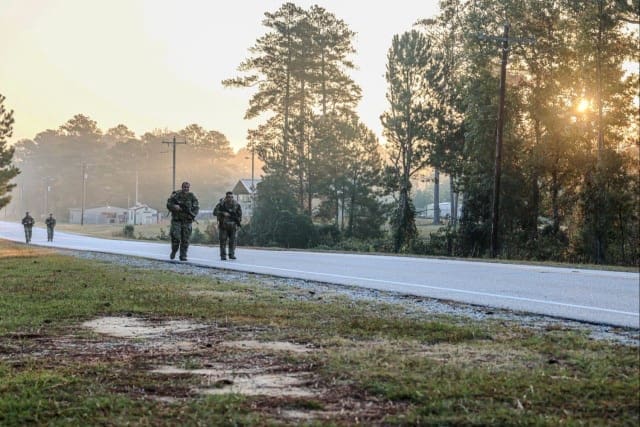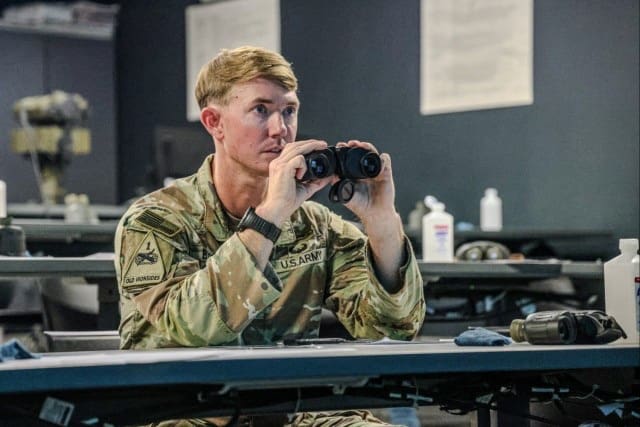
FORT MOORE, Ga. — U.S. Army advisors assigned to the 1st Security Force Assistance Brigade successfully completed the Training Readiness Assessment Program held from Oct. 28 to Nov. 1, 2024, on Fort Moore, Georgia, validating their critical skills to support foreign security force partners across Central and South America.
The Training Readiness Assessment Program, known as TRAP, is a comprehensive and rigorous gated training program, assesses each advisor’s proficiency in key skills needed for their deployment missions. Throughout the week-long program, advisors in the unit’s Force Package 25-2 were evaluated on various tactical and technical competencies, including calling for artillery fire, conducting casualty treatment and evaluation, operating communications equipment, and qualifying with the M4 and M17 weapon systems.

“Leaders need to understand the current skills and fitness of their formation. Due to the work we do, in the organization we do it, success or failure comes down to individual Advisors in the field. TRAP provides a venue for assessing each Advisor’s strengths and shortcomings in a standardized, mission-focused exercise. The insight gained from TRAP helps command teams determine future training requirements and organizational priorities,” said Capt. William Romine, a U.S. Army advisor assigned to 1st Battalion, 1st SFAB.
The advisors also demonstrated physical readiness by completing several physically demanding events, including ruck marches and a station-based fitness event. The latter challenged advisors to move from station to station, performing individual tasks to reinforce their ability to operate under pressure and validate their skills before advancing.

This emphasis on physical fitness and stamina is integral to the advisors’ roles, ensuring they’re prepared for the high-stakes environments they may face while deployed.
“TRAP is essential because it ensures advisors have the individual skills necessary to advise and support our partner forces. From combat skills to physical capability to military professionalism, TRAP provides the final check of each advisor’s attributes prior to moving into team-focused, collective training,” said Romine.
“I particularly enjoyed the combination of physical tests and marksmanship. These two facets of soldiering are significant to me, and it has been a while since I had the opportunity to focus on my proficiency in these areas,” he added.
Each skill demonstrated by the advisors during TRAP is closely aligned with the mission requirements they will face in their assignments abroad, if they were to deploy in a large-scale combat operation.

The ability to effectively call for artillery support is critical in joint operations with partner forces. Similarly, their training in medical response and casualty treatment helps advisors remain self-sufficient and responsive in unpredictable situations. Effective communications skills, tested during the program, further enable advisors to coordinate and integrate with foreign security partners seamlessly.
The TRAP signals the end of their individual training phase, and the advisors will now advance to collective training where they will receive further training on assess, liaise, support, and advise operations in competition, crisis, and conflict scenarios.
As Force Package 25-2, the 1st SFAB advisors are preparing to deploy to Central and South America, equipped and validated to support partner nation forces across Central and South, strengthening alliances and building partner capacity to address regional security challenges.
By MAJ Jason Elmore
This entry was posted
on Friday, November 15th, 2024 at 01:00 and is filed under Army, Forces Focus, Guest Post.
You can follow any responses to this entry through the RSS 2.0 feed.
You can skip to the end and leave a response. Pinging is currently not allowed.



